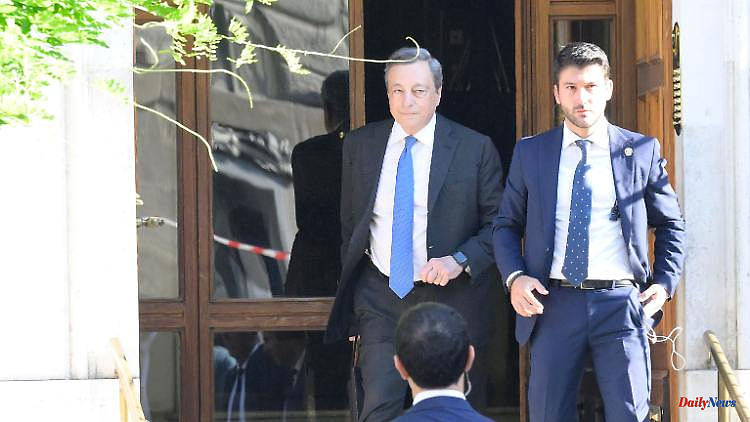Italian Prime Minister Mario Draghi sees no possibility of continuing in government and offers to resign. President Mattarella accepts the request.
Italian President Sergio Mattarella has accepted the resignation of Prime Minister Mario Draghi. This was announced by the Quirinal Palace in Rome. The government will initially remain in office for ongoing business.
Draghi did win a vote of confidence in the Senate on Wednesday, but not with the broad majority he desired. The left-wing populist Five Star Movement, the right-wing populist Lega and the conservative Forza Italia did not vote.
The government crisis was triggered by the Five Star Movement's lack of confidence in the cabinet of the non-party ex-head of the European Central Bank. In a vote a week ago, the co-governing center-left Draghi party refused to vote because of disagreements over an aid package and the construction of a waste incineration plant in Rome it contained, thereby escalating the government crisis. Draghi then submitted his resignation to President Mattarella. However, the latter rejected Draghi's first request and instead ordered him to a debate in the Senate for today.
Mattarella could now hire someone to form a governing majority in the existing parliament, or he could dissolve the two chambers, which would trigger a snap election. This must then be done within 70 days. Therefore, a possible election date between the end of September and the beginning of October would be likely.
In the second half of 2022, Italy must implement important reforms so that Brussels can distribute the next tranche of the Corona reconstruction aid worth billions. In addition, Parliament has to plan the budget for 2023, which usually takes a long time. In the event of a new election, the country would initially hardly be able to act politically, and that in times of rising inflation and energy prices - caused by the Ukraine war.












